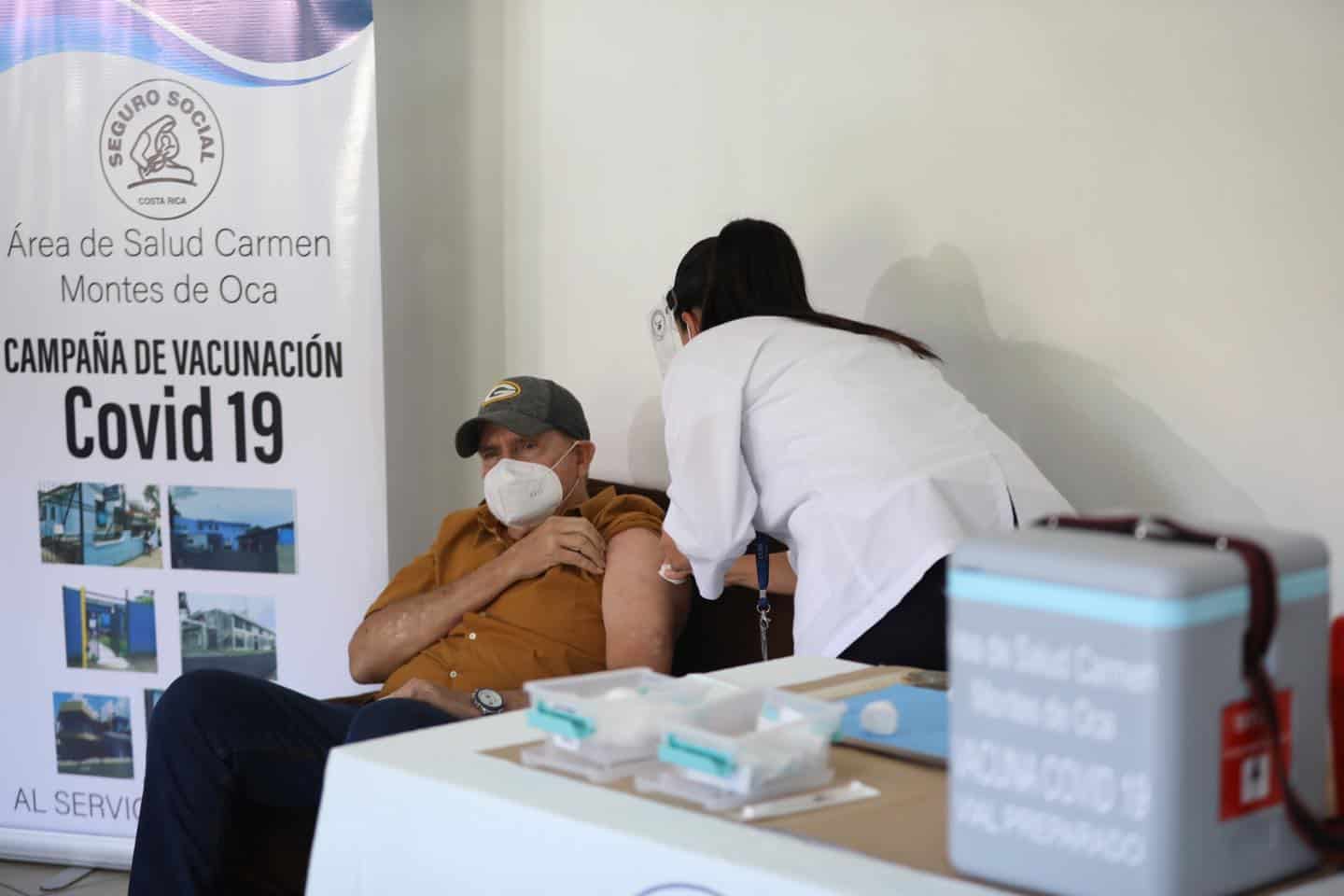Costa Rica has administered 149,812 doses of the Pfizer/BioNTech coronavirus vaccine, the Presidency said Monday.
The nearly 150,000 jabs mean Costa Rica has administered 2.94 doses per 100 people. This places the country behind the United States (22.7), Chile (17.9), Canada (4.8) and Brazil (4.0) for that metric on the American continent, according to The New York Times vaccination tracker.
“In the last week alone, about 50,000 doses were injected,” reported President Carlos Alvarado. “I celebrate this fact, because we have seen how more and more elderly people are protected. The vaccination campaign advances for the well-being of many families and the economy of our country!”
Pfizer last week delivered 92,430 doses of its vaccine to Costa Rica, the largest shipment to date. A healthcare provider in Israel — which has one of the fastest vaccine rollouts worldwide — reported a 94% drop in symptomatic C0vid-19 infections among 600,000 people who received two doses of the Pfizer vaccine.
“It shows unequivocally that Pfizer’s coronavirus vaccine is extremely effective in the real world a week after the second dose, just as it was found to be in the clinical study,” said Ran Balicer, chief innovation officer for Clalit, an Israeli health maintenance organization.
This month, Costa Rica began vaccinating citizens and residents who are 58 and older against the coronavirus. Costa Rica hopes plans to vaccinate every eligible adult against Covid-19, including at least 80% of adults in 2021.
The National Commission of Vaccination and Epidemiology, part of the Health Ministry, has indicated the priority for vaccination will be as follows:
- First group: Staff and residents at retirement or nursing homes.First responders, including health personnel.
- Second group: Costa Rica’s older population, defined here as those ages 58 and up. According to the Presidency, this group will be required to demonstrate residency with a cédula or DIMEX.
- Third group: People from 18-58 with risk factors, including hypertension, diabetes, heart disease, respiratory illness, kidney disease and obesity, among others.
- Fourth group: Teachers and other staff within the Education Ministry (MEP) or private schools. Imprisoned people and judicial staff. Workers for the 911 service.
- Fifth group: Health science students and related technicians in clinical fields. People ages 40-57 without any of the aforementioned risk factors but whose work puts them in contact with others. This includes laborers in agriculture, construction, service industries, etc.
The Caja will call individuals to schedule their coronavirus vaccine. Those who fall into priority groups should contact their local EBAIS (public community health clinic) and ensure their contact information is current.
Costa Rica has purchased 3 million doses of the Pfizer/BioNTech vaccine, enough for 1.5 million people.
The country also has an agreement for 1 million doses of the AstraZeneca vaccine, enough for 500,000 people. It authorized that formula last week, though the first shipments aren’t expected until May.
In addition to Pfizer and AstraZeneca, Costa Rica has signed onto the Covax mechanism of the World Health Organization (WHO) to provide vaccines.
The latest Covid data
See the below graph for the latest Costa Rica coronavirus updates:
If you believe you have COVID-19, contact Costa Rica’s hotline at 1322. English-speaking staff and mental health professionals are available. Visit the Costa Rican Presidency for the official list of coronavirus measures and alerts.






